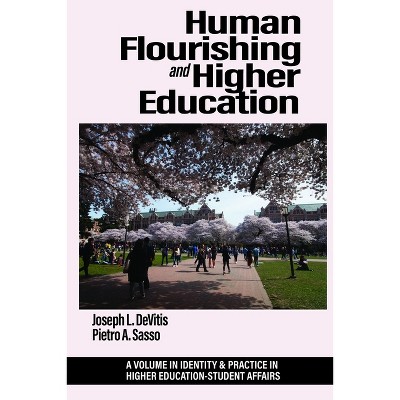The Semiotic Field of the Garden - (Advances in Cultural Psychology: Constructing Human Developm) by Teppei Tsuchimoto (Paperback)

About this item
Highlights
- This book is not only a direct study of gardens, but also an exploration of the relationship between personal and collective culture, an important component of cultural psychology.
- Author(s): Teppei Tsuchimoto
- 472 Pages
- Body + Mind + Spirit,
- Series Name: Advances in Cultural Psychology: Constructing Human Developm
Description
About the Book
This book explores the relationship between personal and collective culture through gardening, offering insights into human development. It examines the aesthetic and symbolic significance of gardens and their impact on the human psyche. Ideal for scholars of cultural psychology and anyone interested in people connecting with gardens.
Book Synopsis
This book is not only a direct study of gardens, but also an exploration of the relationship between personal and collective culture, an important component of cultural psychology. This perspective leads to the strange but fascinating question: "How does gardening relate to human development?"
Exploring the meaning of "garden" for a human being offers profound insights on the relationship between personal and collective culture. In the process of constructing of a garden, nature becomes the object, on which various liminal, aesthetic, and symbolic activities are directly performed. The term "garden" encompasses a multitude of meanings. It is a place for recreation as well as a symbol of social status and prosperity. For the gardener, it is a place of work. Feelings aroused by a garden are deeply rooted in people's hearts and have an aesthetic significance. Throughout the book, readers will be awakened to how deeply the garden is connected to the human psyche.
This book will be of interest to scholars and students of cultural psychology, as well as to anyone interested in the relationship between people and gardens (gardeners, architects, artists, farmers). Readers are encouraged to look back at their own experiences to deepen their understanding of personal and collective culture. Imagine the garden you are familiar with, be it a home garden, neighborhood park, cemetery, or schoolyard. You may find that facets of your experiences are reflected in the colorful and diverse gardens featured in this book.











